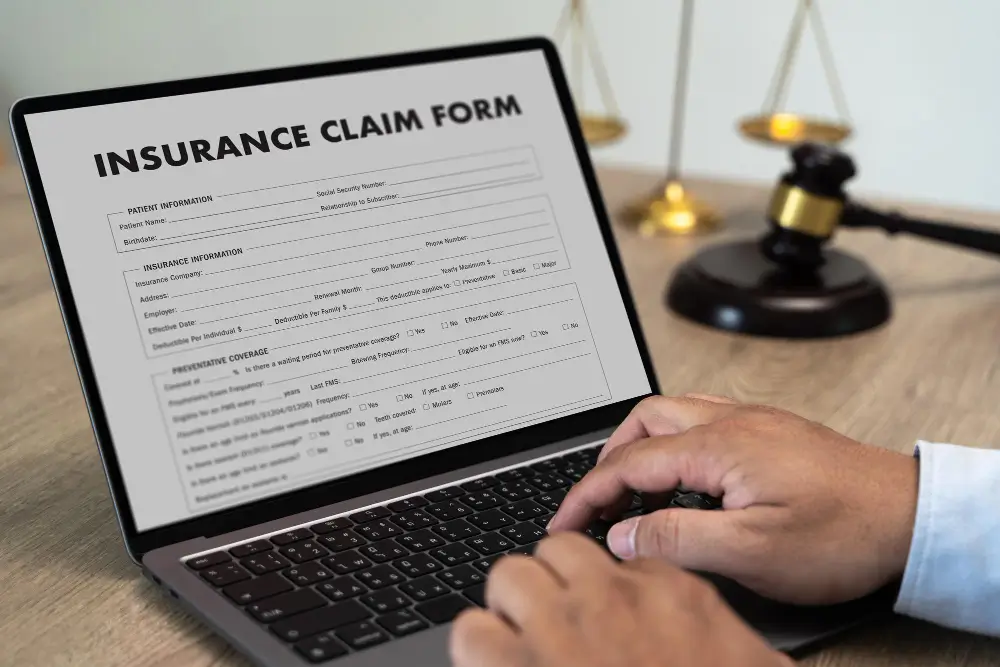“Make an insurance claim” sounds like a daunting process, especially if you're unsure about how to navigate the intricacies of insurance policies, paperwork, and legalities. Whether you're dealing with car accidents, property damage, health-related issues, or any other insured event, understanding the process and your rights is crucial to ensure that you get the best settlement possible.
In New Zealand, the insurance industry is well-regulated, and there are clear steps you can take to maximize your chances of a favourable settlement. This manual will lead you through the necessary procedures and steps to help you make an insurance claim and offer tips to help you get the best possible outcome.
Understand Your Insurance Policy
The first step in successfully making an insurance claim is to understand your policy thoroughly. Policies differ greatly based on the insurance provider and the type of insurance you have (car, home, health, life, etc.). Here are a few things to look out for:
- Coverage Limits: What are you covered for, and how much is the insurer willing to pay for different types of claims? For instance, some home insurance policies may not cover flood damage, while others might.
- Excess: This is the amount you must pay out of pocket before the insurance kicks in. Understanding your excess is critical for managing expectations when it comes to the final payout.
- Exclusions and Conditions: Be aware of the exclusions in your policy. These are events or circumstances that may not be covered. Make sure you understand any particular requirements that must be fulfilled for a claim to be considered legitimate.
- Claim Timeframe: Insurance policies usually have specific time limits within which a claim must be made. If you miss the deadline, your claim could be denied.
If you’re unsure about your policy or need clarification, NZ Insurances is here to help you navigate your coverage options.
Notify Your Insurer Promptly
Once you've experienced an event that requires you to make an insurance claim, it’s essential to notify your insurer as soon as possible. Most insurers have specific timelines for reporting claims (usually within a few days to weeks, depending on the policy). Failing to notify them promptly could result in a reduction or rejection of your claim.
You should contact your insurer initially by calling their claims department, emailing them, or submitting a claim through their online portal. Be sure to keep a record of your communication, including the date and time you made the report.
Document Everything
Documentation is crucial when you make an insurance claim. The more proof you can offer, the more solid your argument will be. Here are a few examples of what you should document:
- Photos and Videos: If you’ve experienced damage to property, cars, or health issues, take clear photographs or videos. These graphic documents will assist in supporting your assertion and show the extent of the damage or loss.
- Receipts and Invoices: If you're claiming for repairs, replacements, or medical treatment, provide receipts or invoices to demonstrate the cost of the damage or medical services.
- Witness Statements: If there were witnesses to the event, ask them to write statements detailing what they saw. This can help back up your version of events.
- Police Reports (if applicable): For incidents such as theft, vandalism, or accidents, you should file a police report. The report can be a critical part of your claim documentation.
Follow the Insurer’s Claims Process
Each insurance company has a specific process for handling claims, so make sure you follow their procedures to avoid delays or complications. Some insurers may require you to submit an online claim, while others may want physical documentation.
- Claim Form: Some insurers will ask you to complete a claim form with details about the incident. Be honest, accurate, and as detailed as possible when filling out these forms. Any differences could cause delays or even the rejection of your claim.
- Inspection and Assessment: The insurer may send an assessor to inspect the damage or loss. Be prepared for this and ensure that all relevant areas are accessible. Make sure you’re available for the inspection, and if possible, take your notes about the damage before the assessor arrives.
- Provide Supporting Information: If your insurer asks for additional documentation, provide it promptly. This may include medical records, repair estimates, or any other information that supports your claim.
Keep a Record of All Communication
Maintain a comprehensive record of all correspondence with your insurer. This should include emails, letters, phone calls, and any other form of communication. Keep a log of all conversations, including the names of the people you spoke to, the dates and times of conversations, and a summary of what was discussed.
Having a paper trail can be valuable if there is any dispute or if you need to escalate your claim later on. This can also help ensure that you stay on top of deadlines and don’t miss any important steps in the claims process.
Stay Organized and Be Persistent
Insurance claims can sometimes take longer than expected, and you may face challenges along the way. It’s important to stay organized and keep track of deadlines, requirements, and follow-up actions.
If the insurer doesn’t provide timely updates or if you feel that the settlement offer is too low, don’t hesitate to ask for clarification. A polite but firm approach can sometimes help move things along. If necessary, follow up multiple times, keeping records of each contact.
Negotiate the Settlement
Once your claim has been processed and your insurer has made an offer, you should carefully review it. If you feel the settlement is not adequate or doesn’t reflect the full value of your loss, you have the right to negotiate.
- Understand the Offer: Make sure you fully understand how the insurer arrived at their settlement offer. You should get a second opinion on the value of your property or repairs if you're not satisfied with the assessment.
- Be Prepared to Justify Your Position: If you're negotiating for a higher settlement, be prepared to present your evidence. This may include additional repair estimates, valuations, or proof of financial loss.
- Consider Legal Advice: If the settlement offer is significantly lower than expected or if you believe you're not being treated fairly, it may be worth seeking legal advice or contacting an independent insurance ombudsperson for support.
Know Your Rights and Legal Recourse
In New Zealand, the insurance industry is regulated by the Financial Markets Authority (FMA), and disputes with insurers can be escalated to the Insurance & Financial Services Ombudsman (IFSO). (Add nofollow tag to external links) The IFSO can assist if you believe your claim has been unfairly handled or if the insurer is not fulfilling its obligations.
In some cases, if you believe the insurer is acting in bad faith or not adhering to the terms of the contract, you may need to take legal action. This is usually a last resort, but it’s important to be aware of your rights and options if you’re not satisfied with the insurer’s response.
Frequently Asked Questions:
Q. When filing an insurance claim, what should I do first?
Ans. Examine your insurance coverage first to understand your coverage, excess, and any exclusions. Then, notify your insurer as soon as possible, either by phone or online.
Q. How can I provide documentation to back up my insurance claim?
Ans. Document everything! Take photos and gather receipts, witness statements, and police reports (if applicable). The more evidence you provide, the stronger your claim will be.
Q. What happens if I reject the offer of a settlement?
Ans. If the offer doesn't satisfy you, you can haggle by presenting additional evidence, like repair estimates or valuations. If necessary, consider seeking legal advice.
Q. How long does it take to make an insurance claim?
Ans. Consult your policy for precise time restrictions. Be quick because most insurers require you to submit a claim within a few days or weeks of the occurrence.
Q. If my insurance is not handling my claim fairly, what can I do?
Ans. Suppose you're dissatisfied with your insurer’s response. In that case, you can escalate the issue to the Insurance & Financial Services Ombudsman (IFSO) for assistance. Legal action may be an option in extreme cases.
Conclusion
Making an insurance claim in New Zealand doesn’t have to be an overwhelming process if you follow the right steps. By understanding your policy, providing comprehensive documentation, and being proactive in communicating with your insurer, you can increase the likelihood of receiving a fair and adequate settlement.
Remember that the claims process may take time, and staying organized and persistent is key to ensuring that your claim is processed efficiently. If needed, don’t hesitate to seek professional advice or reach out to NZ Insurances to guide you through the process and help ensure the best outcome for your claim. You can get the money you're entitled to and effectively handle the insurance claim procedure by following the correct procedures.










